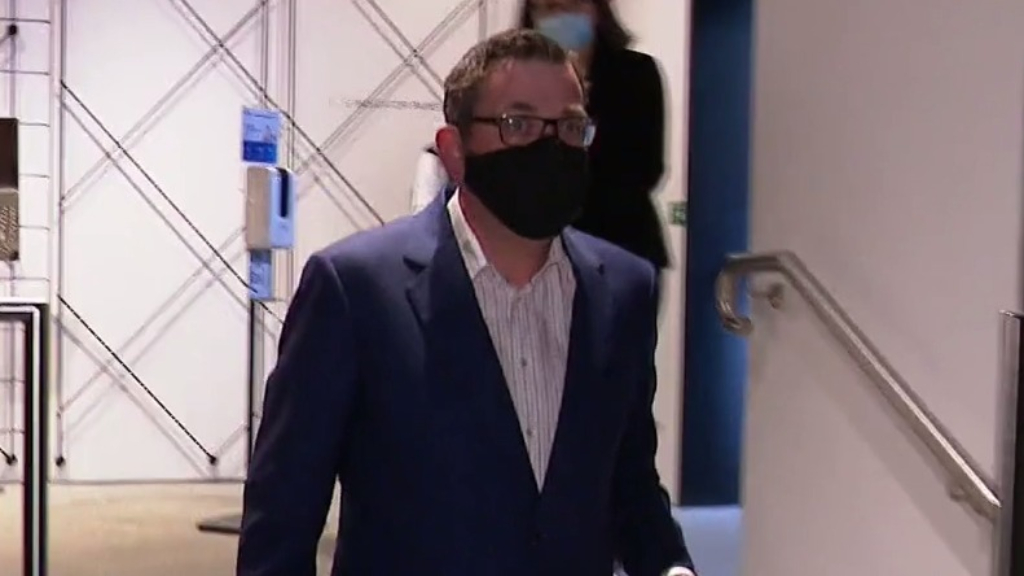He had symptoms the first time around, but no obvious symptoms the second time, the team at the University of Hong Kong reported.
The pre-print study - which the University of Hong Kong said has been accepted for publication in the journal Clinical Infectious Diseases - found that the man's second case of COVID-19 occurred 142 days after the first.

During his first episode of illness, the patient had a cough, sore throat, fever and headache for three days, according to the study. He tested positive for COVID-19 on March 26.
Then during his second episode, the patient was returning to Hong Kong from traveling in Spain via the United Kingdom, and he tested positive during his entry screening at the Hong Kong airport on August 15, the researchers said. The man was hospitalised again but remained asymptomatic.
For the study, researchers at the university and various hospitals in Hong Kong analysed specimens collected from the patient 10 days after his symptoms emerged in the first episode and then one day after hospitalization for the second episode.
Genetic analysis suggested that the first infection was from a strain of the coronavirus most closely related to strains from the United States or England, and the second infection was most closely related to strains from Switzerland and England.

"This case illustrates that re-infection can occur even just after a few months of recovery from the first infection. Our findings suggest that SARS-CoV-2 may persist in humans, as is the case for other common-cold associated human coronaviruses, even if patients have acquired immunity via natural infection or via vaccination," the researchers wrote.
The findings also show that people who have had coronavirus already should nonetheless get vaccinated if and when a vaccine becomes available, the researchers wrote.
"Patients with previous COVID-19 infection should also comply with epidemiological control measures such as universal masking and social distancing," they wrote.
"There's been more than 24 million cases reported to date. And we need to look at something like this on a population level. And so it's very important that we document this - and that, in countries that can do this, if sequencing can be done, that would be very, very helpful. But we need to not jump to any conclusions," Van Kerkhove said.
"Even if this is the first documented case of reinfection, it is possible of course because with our experience with other human coronaviruses, and the MERS coronavirus and the SARS-CoV-1 coronavirus, we know that people have an antibody response for some time but it may wane."
"Second infection was asymptomatic. While immunity was not enough to block reinfection, it protected the person from disease," Iwasaki tweeted. "Patient had no detectable antibody at the time of reinfection but developed detectable antibody after reinfection. This is encouraging."
She added that since reinfection can occur, herd immunity by natural infection is unlikely to eliminate the novel coronavirus.
"The only safe and effective way to achieve herd immunity is through vaccination," Iwasaki tweeted. "Lastly, while this is a good example of how primary infection can prevent disease from subsequent infection, more studies are needed to understand the range of outcomes from reinfection."

https://news.google.com/__i/rss/rd/articles/CBMijgFodHRwczovL3d3dy45bmV3cy5jb20uYXUvd29ybGQvY29yb25hdmlydXMtd29ybGQtZmlyc3QtY2FzZS1vZi1yZWluZmVjdGlvbi1jb25maXJtZWQtaG9uZy1rb25nLXVuaXZlcnNpdHkvM2QwYjE2Y2ItMDUyNy00NTgzLWFjMmQtN2UzYjE1OTM3OWVl0gFFaHR0cHM6Ly9hbXAuOW5ld3MuY29tLmF1L2FydGljbGUvM2QwYjE2Y2ItMDUyNy00NTgzLWFjMmQtN2UzYjE1OTM3OWVl?oc=5
2020-08-24 22:19:00Z
52781017662084
Bagikan Berita Ini














0 Response to "Hong Kong man 'first case' documented of getting coronavirus twice, researchers say - 9News"
Post a Comment